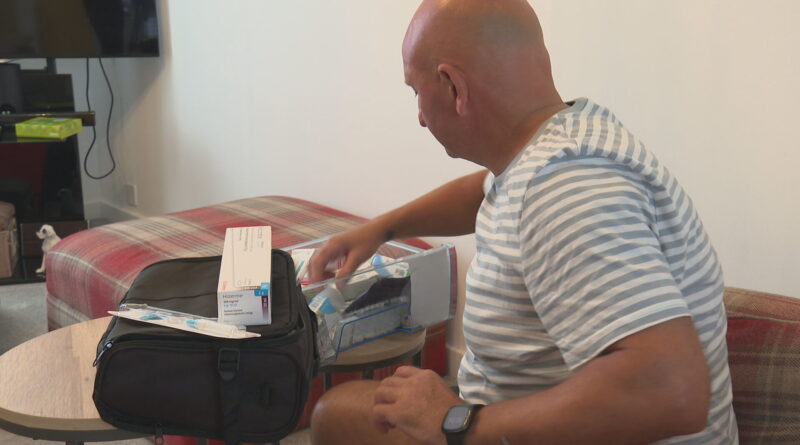A man with incurable cancer is among the first to receive a new radical treatment
A man with an incurable form of bone marrow cancer has hailed a new life-saving drug approved by the NHS.
The two drugs, elranatamab and teclistamab, will be available to people with myeloma in Scotland who have received three or more treatments.
The condition affects around 24,000 people in the UK each year with over 3,000 deaths from the disease each year.
Graeme Caulfield, 54, said he thought he had lost hope when he was given new treatment by doctors in February.
Known as bispecific antibodies, the pioneering treatments are the first new class of myeloma drugs to be approved in Scotland for almost seven years.
Both have been shown to stop myeloma in its tracks for at least 11 months on average and even allow some people who had not fully responded to treatment until then to achieve their first complete remission.
Graeme Caulfield was diagnosed with myeloma after being rushed to hospital with kidney failure in October 2014.
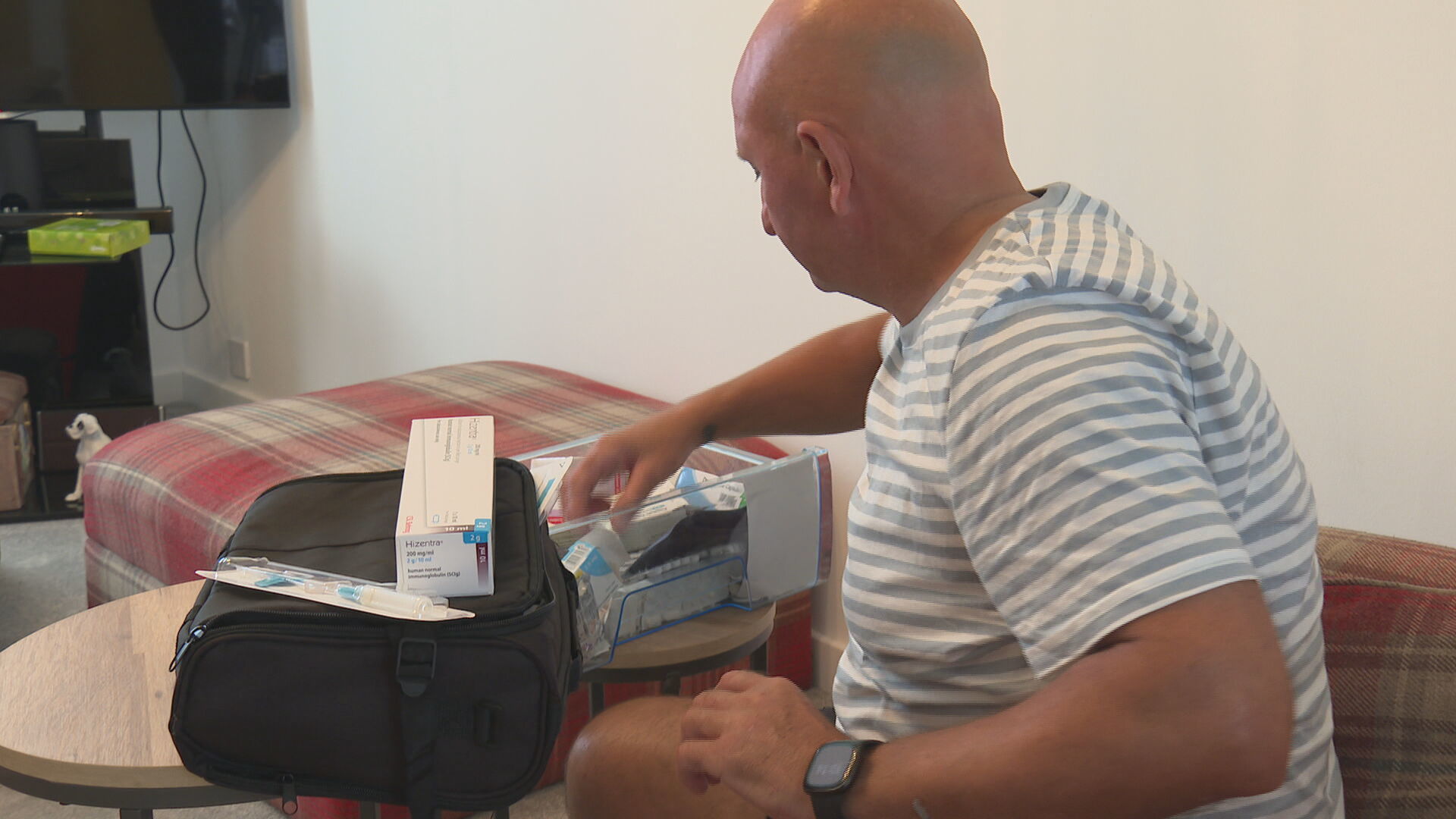 STV news
STV newsHe is among the first in Scotland to trial the “life-changing” drug in the form of a weekly injection and is now in remission.
He told STV News: “I call it a wonder drug. It’s like a dream. I took this pretty much all day. I will be happy to stay connected with this healthy life.
“I ran out of treatments in February – at the time it felt like the end of the line for me. I thought maybe I could go home and survive for three months. How do you focus on that? Unfortunately for me, that was the conversation.
“I’d say we’ve noticed something different after a few months, watching the numbers go south. We’re hoping it’s going to last a long time.
“To me, there’s hope that there’s something there.”
On average, 16 people are diagnosed with myeloma every day in the UK.
Despite being the third most common type of blood cancer, myeloma is very difficult to recognize as symptoms, chief among them pain, brittle bones, fatigue and persistent infections, are often associated with general aging or minor conditions.
Half of patients face a wait of more than five months to get a proper diagnosis and about a third are diagnosed incidentally.
Although incurable, myeloma is treatable in most cases.
Half of all myeloma patients will survive their disease for five years or more, while about a third of myeloma patients will live for ten years or more.
Graeme recalled the heartbreaking moment doctors told him he had multiple myeloma a week after he was admitted to the renal Infirmary in Glasgow ten years ago.
He adds: “I was a fit, young guy and it was new to me. I was active but felt very tired.
I thought ‘here we go.’ I started treatment four days later. It was amazing.
You think ‘it’s not me.’ The trip was very enjoyable. ”
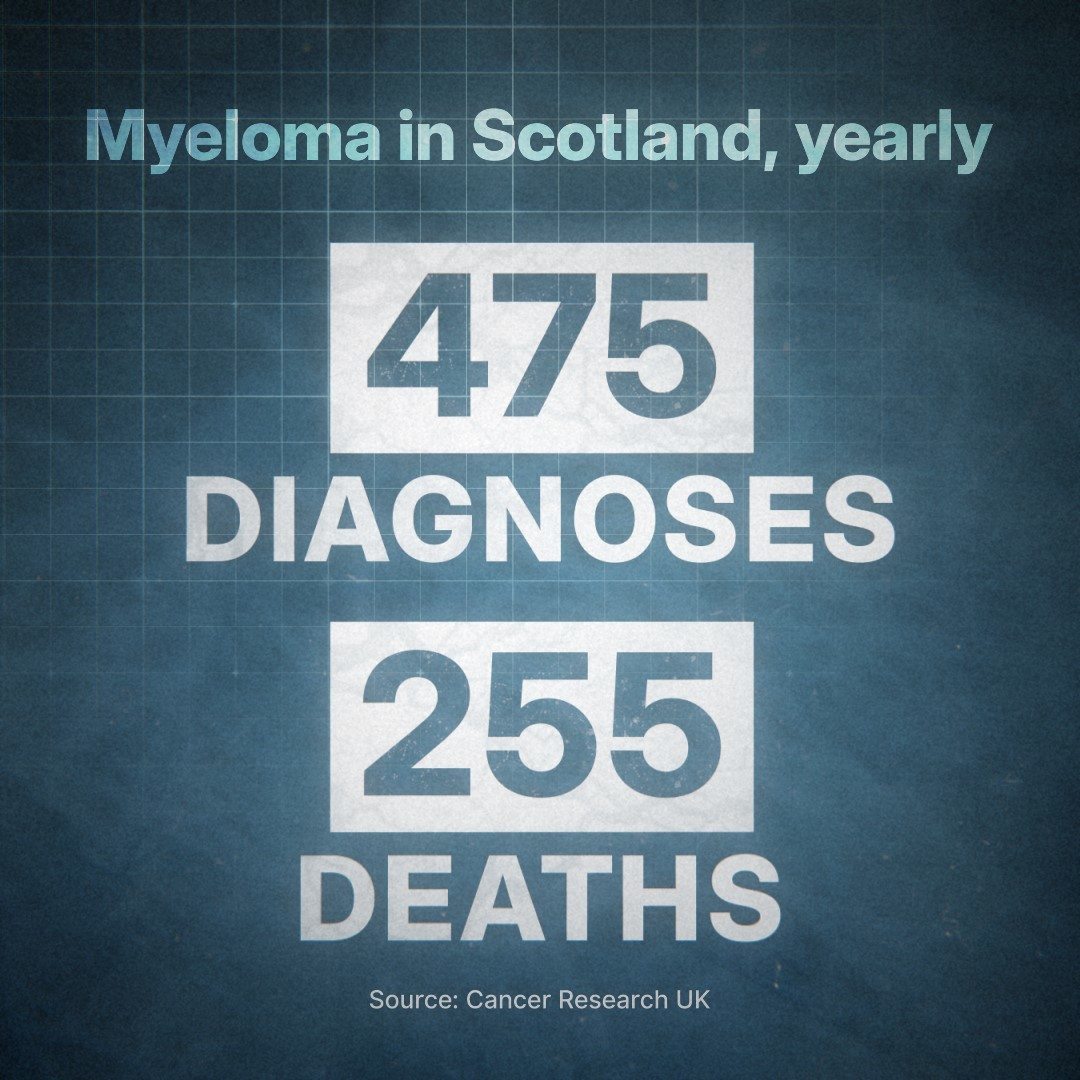 STV news
STV newsMyeloma treatment aims to control the disease, relieve the complications and symptoms it causes, increase patients’ life expectancy and improve their quality of life.
Teclistamab and elranatamab’s mechanism of action helps the immune system recognize and kill cancer cells by binding to myeloma cells and T cells.
T cells are a type of white blood cell in our immune system. When anti-bispecific antibodies bind to myeloma cells, they are able to destroy these cells.
Graeme has to take antibiotics and painkillers to manage symptoms including fatigue, bone pain and nerve damage as a result of his condition – but he said it was the best he had ever felt. age.
He said: “I was reporting a lot of unusual back pain at the time and I spoke to a pharmacist – he said ‘it’s great, it’s a treatment that fights cancer cells’.”
It is completely unique. I couldn’t believe the results I was getting. A small injection lasts a long time.
“There are a lot of treatments in a decade but this could be it. You’re still fighting.”
Graeme says the support of his family and friends and the hard work of NHS staff have helped keep his spirits up on his journey.
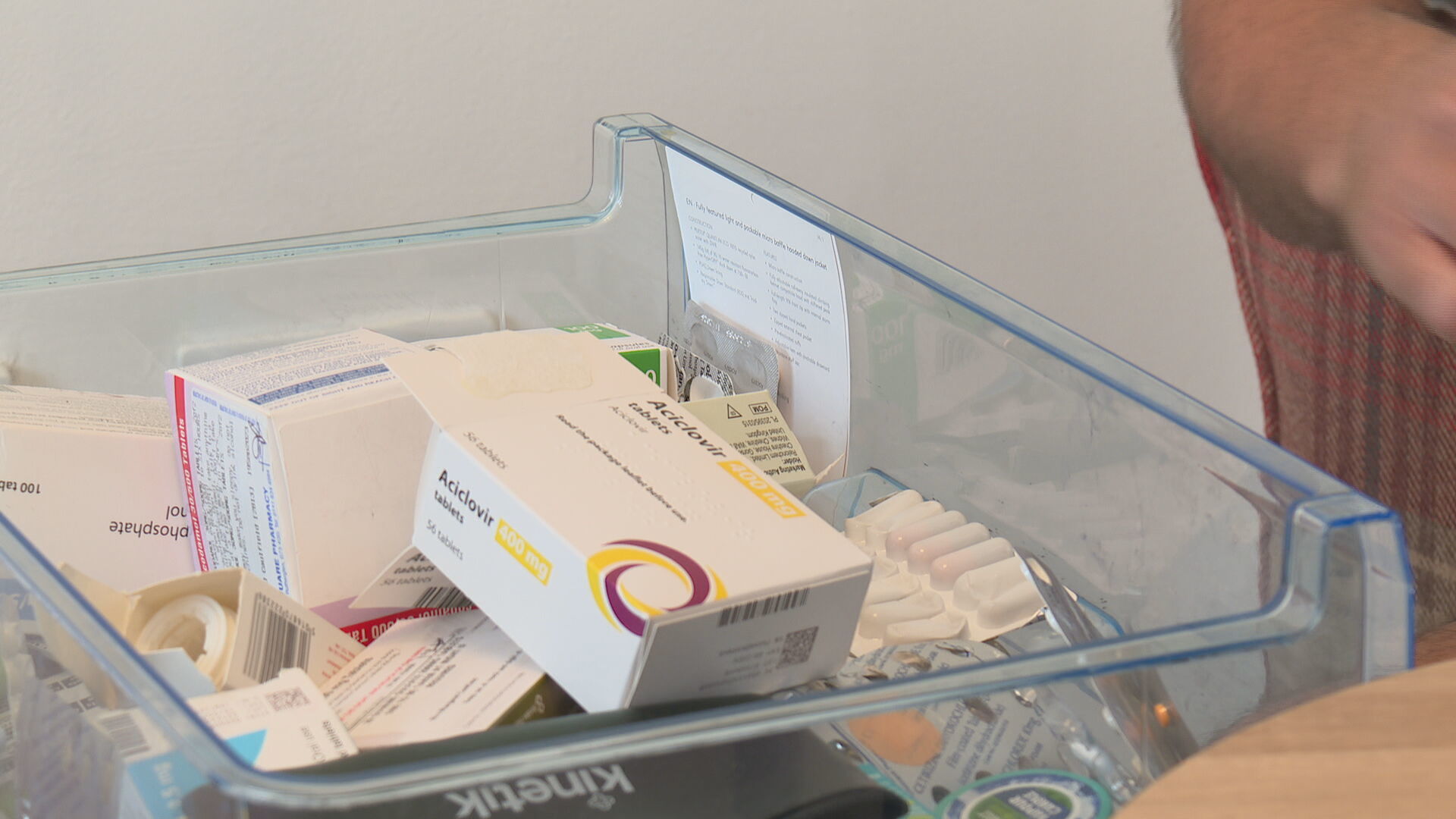 STV news
STV newsHe said: “Angels taken by the hand have done an amazing thing to make me stay here.” They always fix me.
“Hopefully we can extend and keep me here. My family and friends have been amazing. The support I have had is amazing.
“There are many people you see in the clinic. Ten years ago I watched one person arrive. You see people and you think ‘they’re walking.’
“There are new treatments that will give people a healthy life.
“When I’m sleeping, someone is working on another treatment out of sight.
“I hope it will encourage someone to see the good results I got. When your door is infected with incurable cancer, your reality is there. You have to slow down.
“My prayers were answered. If this fails, there may be something else. Never give up.”
Elranatamab and teclistamab are targeted at fourth-line patients who have previously received an immunomodulatory agent such as lenalidomide (Revlimid®), a proteosome inhibitor such as bortezomib (Velcade®) and an anti-CD38 antibody such as daratumumab (Darzalex ®).
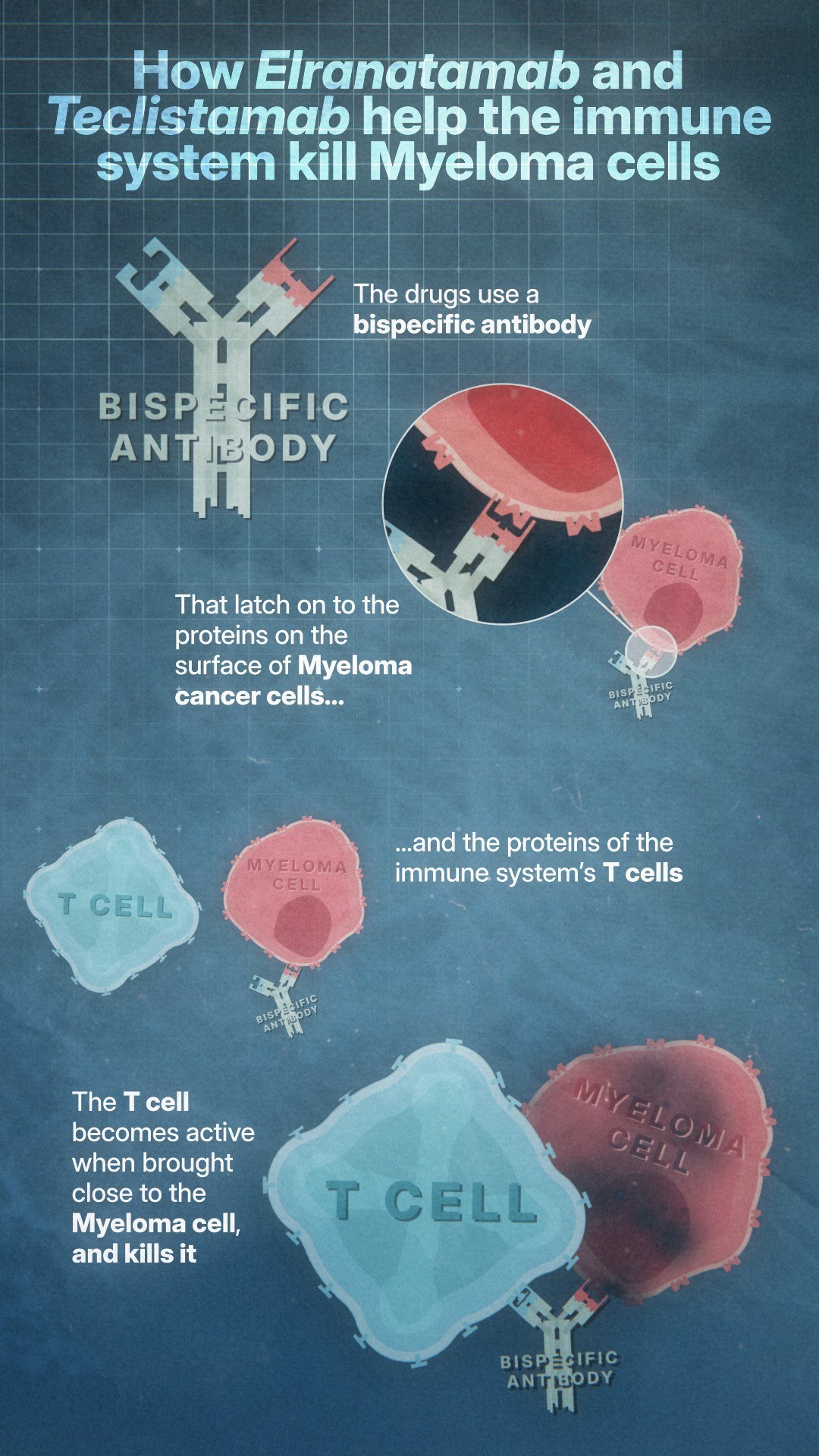 STV news
STV newsAccording to the latest data from the MajesTEC-1 trial, the patient response rate to teclistamab is 63%.
Meanwhile, the MagnetisMM-3 trial showed an overall response rate to elranatamab of 61%.
While teclistamab was approved permanently on the NHS, elranatamab was given provisional approval.
This means that elranatamab is currently approved for use because the Scottish Medicines Consortium is aware of the benefits and costs of the treatment for patients, but that the drug will be re-evaluated later, when ongoing clinical trials provide more information. in terms of aspects such as long-term success. .
Myeloma UK has confirmed it will monitor the situation and make the case for permanent access to Elranatamab.
Charity bosses said it was a “big day” for the myeloma community, which could help patients live “longer, happier lives.”
Shelagh McKinlay, director of research and advocacy at the blood cancer charity Myeloma UK, said: “We are absolutely delighted. Elranatamab and teclistamab are the first new class of medicines to be approved in Scotland for seven years and another and another can be a way of life for people who are about to run out of treatment options.
“Both have shown very good results in clinical trials and have allowed some people who have not yet responded well to treatment to achieve their first complete remission.
“Until we find a cure, it is extremely important that all myeloma patients are given as many options as possible to manage their cancer – no matter where they are in their treatment journey.”
STV news is now on WhatsApp
Get the latest news from around the country
Follow STV News
Follow STV News on WhatsApp
Scan the QR code on your mobile device for all the latest news from around the country

#man #incurable #cancer #among #receive #radical #treatment
